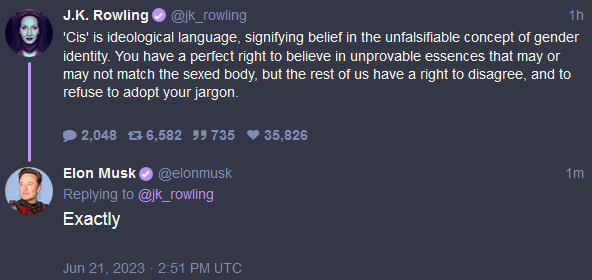inshallah2
The year is 2122 and to get to a food distribution center - a brave American soul has braved the outside with its toxic atmosphere and skin burning UV rays due to the partial destruction of ozone layer by climate change mitigation efforts. It is 120 degrees outside. And it's much hotter inside her suit. She is at the center to get her monthly allowance of 10 units of food. "Food" is what it's called anyway.
"Hey, droid. You gave me 9 units."
"Incorrect. There are 10."
"Count them yourself: 9. A unit is clearly missing." Are even droids selling shit on the black market now?
"Dogs." Cyberdyne Systems cyberdogs are programmed to kill in 13 different ways. For control purposes there are 3 dogs in the room. There are dozens patrolling the center.
"Hey, you know what? 10. I made a mistake. There are 10 here! I am a happy citizen!" She doesn't want dogs escorting her home.
"Yes. Yes, you are. Next!"
My question is: How long as he been an asshole? 10 years? 20 years? A lot longer? His entire adult life?
One reason Dawkins is the way he is - must be that he's one of those old people who gets worse with age and he's 80 years old.
He had a huge feud with the evolutionary biologist Stephen Jay Gould. Gould died in 2001. I know hardly anything about the feud other than they really hated each other. It was more than an argument about ideas. It was personal. I also don't know how religious Gould was. That might have had something to do with it too.
Ninja edit
I stumbled upon this a minute ago...
Dawkins vs. Gould: Survival of the Fittest is a book about the differing views of biologists Richard Dawkins and Stephen Jay Gould by philosopher of biology Kim Sterelny. When first published in 2001 it became an international best-seller.
The page is way too long for me to scan easily so I said the hell with it. I hate it when a Wikipedia page is exactly on the subject I'm interested in but the page is probably of little value. I'm interested in the vituperation not the science.
I'm also an atheist. And if clarity is needed online I write "I'm just an atheist. I'm not a New Atheist asshole like Richard Dawkins."
I can imagine Dawkins walking down an isolated country road. He gets started when he turns a corner and a woman in hijab runs up to him. She pleads with with him....
"My husband has had a heart attack. I have no phone. Please call 999!"
"If you admit God does not exist - I shall..."










